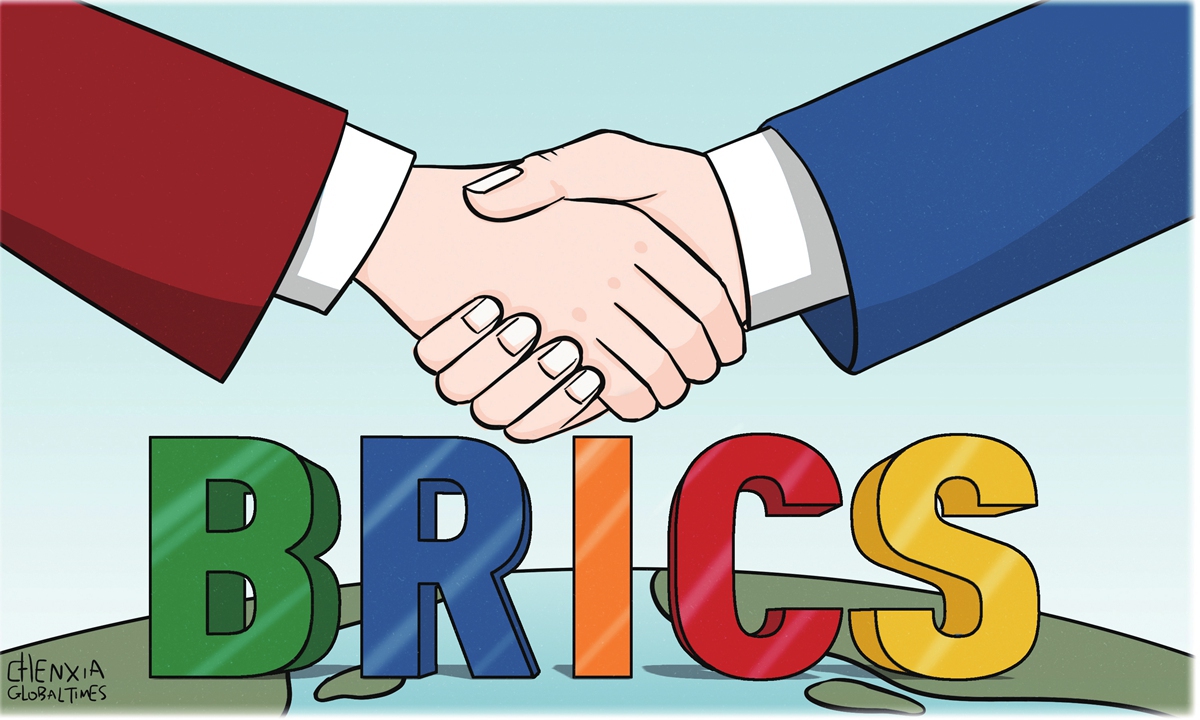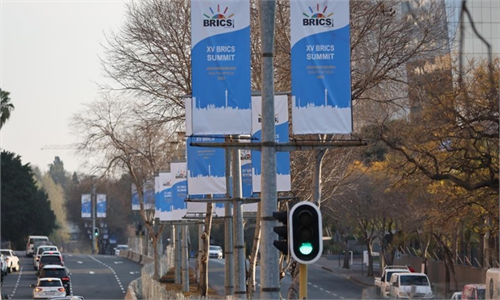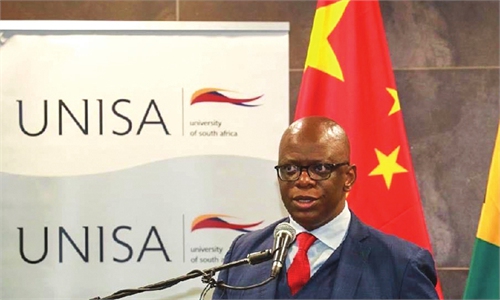
Illustration: Chen Xia/GT
Despite much suspicion in Western media outlets ahead of the highly anticipated meeting of BRICS countries in Johannesburg this week, it won't hinder China and South Africa from working closely at the summit to advance shared interests.South African President Cyril Ramaphosa vowed on Sunday that his country will not be forced to side with any global power, according to AFP.
His remarks came in response to Western hype that the upcoming BRICS meeting will seek to widen its influence and push for a shift in global geopolitics. While there is no denying that the BRICS cooperation mechanism has become increasingly attractive and inspiring to the developing world, this doesn't mean the BRICS will go against or confront the West.
For instance, Anil Sooklal, South Africa's ambassador to the BRICS, said last week in an interview with Bloomberg that even though the BRICS group will discuss deepening the use of local currencies in trade among member states at the summit this week, there are no plans to discuss replacing the US dollar as the world's de facto global currency.
China and South Africa signed a bilateral currency swap agreement as early as 2015, and the summit this week is expected to further strengthen their currency cooperation in trade settlements and other financial aspects. But such cooperation is not for any geopolitical purpose, but entirely out of mutual need.
BRICS cooperation has been strengthened and valued by more and more countries amid the Russia-Ukraine conflict because the Western geopolitical game has done much damage to the global development environment, especially for developing economies. The past few years saw the global economy exposed to a series of risks, such as US inflation, the food crisis as a result of the Russia-Ukraine conflict, and the energy crisis, among others, which could all be traced back to the abuse of some Western countries' economic and financial hegemony and crackdowns on other countries.
These accumulated risks allowed the BRICS countries to see that the order led by the US and its allies had failed to take developing countries' interests fully into account, while the developing world had to passively experience the shocks that the West brought to the global economic and financial systems.
Under such circumstances, it is not surprising to see that more and more countries regard the BRICS mechanism as an ideal forum to advance a closer community of shared interests and a shared future, because there is a common need for greater cooperation to fend off risks.
It is in the strong momentum of BRICS cooperation that the summit is also expected to further strengthen exchanges and cooperation between China and South Africa. For example, South Africa's electricity minister said last week that he expects to seal a deal with the China this week that will help solar-power installers in the African nation secure access to panels for projects needed to tackle its energy crisis, Bloomberg reported.
New energy is just one aspect of China-South Africa cooperation. The two countries have complementary advantages in many fields and have achieved win-win results, with development opportunities in all areas of bilateral cooperation. China is now South Africa's biggest trade partner, while South Africa continues to benefit from its cooperation with China.
Since the establishment of formal diplomatic relations in 1998, mutual trust has continuously strengthened, laying a solid foundation for bilateral economic and trade cooperation. South Africa joined the Belt and Road Initiative in 2015 and has been an active supporter and participant in the Forum on China-Africa Cooperation since its inception in 2000.
It is the high level of political mutual trust and shared desire for economic development that bring the two countries closer under the BRICS mechanism, without being distracted by geopolitical noise.


